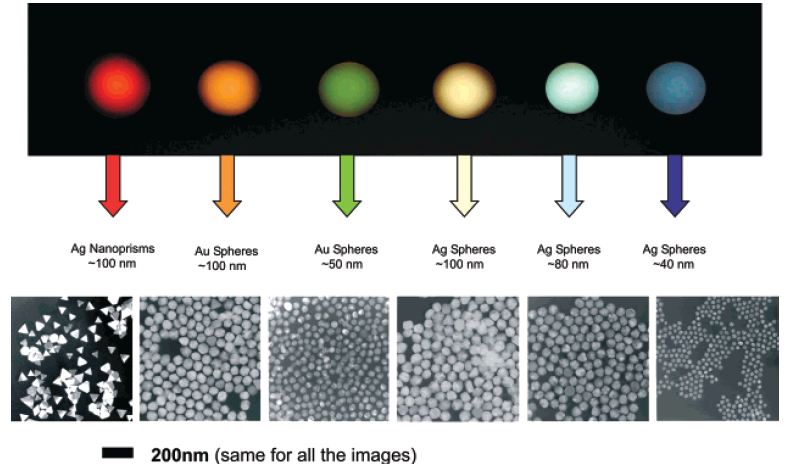I don't know why everyone missed this point. At nanoscale materials tends to have some novel physical and chemical properties comparing to its macro scale. One such phenomenon which is seen especially in metal nanoparticles is Surface plasmon resonance (SPR)
Wikipedia:
"Surface plasmon resonance (SPR) is the resonant oscillation of
conduction electrons at the interface between a negative and positive
permitivity material stimulated by incident light. The resonance
condition is established when the frequency of incident photons
matches the natural frequency of surface electrons oscillating against
the restoring force of positive nuclei. SPR in subwavelength scale
nanostructures can be polaritonic or plasmonic in nature."
It is because of this phenomenon gold nanoparticles have different colours according to its shape and size.

This phenomenon thus enables gold nanoparticles to be used in wide applications such as sensors, fluorescent agents, etc...

